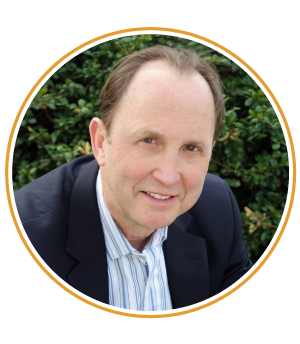 I think it’s time I gave up my disdain for “the wave,” that strange bit of choreography we do at the ballpark, as we rise in unison, throw our hands into the air and mimic a wave moving from one side of the stadium to the other. I always hated it. It seemed so silly and it interrupted my clear view of the game. But now I am rethinking it. Maybe there is something here I never adequately appreciated.
I think it’s time I gave up my disdain for “the wave,” that strange bit of choreography we do at the ballpark, as we rise in unison, throw our hands into the air and mimic a wave moving from one side of the stadium to the other. I always hated it. It seemed so silly and it interrupted my clear view of the game. But now I am rethinking it. Maybe there is something here I never adequately appreciated.
Because, you see, what I missed was the exhilaration we can get by being a part of something larger than ourselves, the sheer joy of acting together with so many others to achieve an effect never possible by a single individual.
What made me think about this was an article I read in the New York Times (7/10/2021) by Dr. Adam Grant about something called “Collective Effervescence.” It is a term coined by pioneering sociologist, Emile Durkheim, to describe the sense of energy and harmony people feel when we come together in a group with a shared purpose.
As Dr. Grant puts it: “(It) is the synchrony you feel when you slide into rhythm with strangers on a dance floor, colleagues in a brainstorming session, cousins at a religious service or teammates on a soccer field,” something we used to take for granted but now –after a year and half of the virus — yearn for and appreciate as never before.
I believe that this is precisely this feeling we get as we join together in our sanctuaries for the High Holy Days each year. The feeling of awe as we stand together, pray together, sing together, is a powerful force, so much stronger than we could ever achieve on our own. It is, I believe, a distinctly Jewish moment of “collective effervescence” and one about which I am particularly conscious as we approach the Days of Awe 5782 and prepare to read from parashat Nitzavim.
Nitzavim is the portion we read just before the new year begins. It is also the portion most Reform Jews read again in the morning Yom Kippur service. Nitzavim describes the moment when Moses assembles the Jewish people just before their entrance into the Promised Land and calls upon them to accept a new covenant with God. “You are standing (Heb., nitzavim) this day…” Moses begins.
It is interesting that Moses doesn’t use the simpler more straightforward Hebrew word for “standing,” “omdim.” Instead he uses this word which means “standing” not as opposed to “sitting,” but in the sense of standing tall, standing strong, standing resolute. With this word, Moses is reminding the people that they have been through much – liberation from Egypt, the experience at Sinai, forty years of wandering in the wilderness with hunger, thirst and the threat of rebellion as ever-present companions. They have been through suffering and privation and loss – but they are still standing. And now it is time for them to step forward confidently into the future.
So it is for all of us as we approach Shabbat Nitzavim and the High Holy Days. We too have been through much in these pandemic days – fear and confusion and loss. But we are still standing — standing tall, standing strong, standing resolute. We are not just “omdim;” we are “nitzavim” and we are doing so, quite literally, as communities throughout the world during these Days of Awe.
We didn’t have the opportunity to do so a year ago. For most of us, High Holy Days 5781 were a time we stayed home and experienced communal worship at one step removed, via Zoom or streaming services. We couldn’t meet our friends and family as we walked into synagogue, couldn’t hug them and wish them Shana Tova. We couldn’t join them in the sanctuary, sitting and standing and singing together with them. We couldn’t experience that wonderful joy, that “collective effervescence” that comes of sharing such powerful moments, such magic moments with them.
This year, I pray, it will be different for us. This year, I pray, we’ll have the opportunity to experience the delight of being together, knowing we have withstood a singularly challenging year but that we are still standing and are ready to step forward into the future, strengthened in the furnace of the pandemic. As we stand together, I pray we feel again that wave of joy, of exuberance, of “collective effervescence” that can only come when we stand together in the presence of each other – and our God.

The views and opinions expressed in this article are those of the author(s) and do not necessarily reflect the official policy or position of the World Union for Progressive Judaism (WUPJ).
